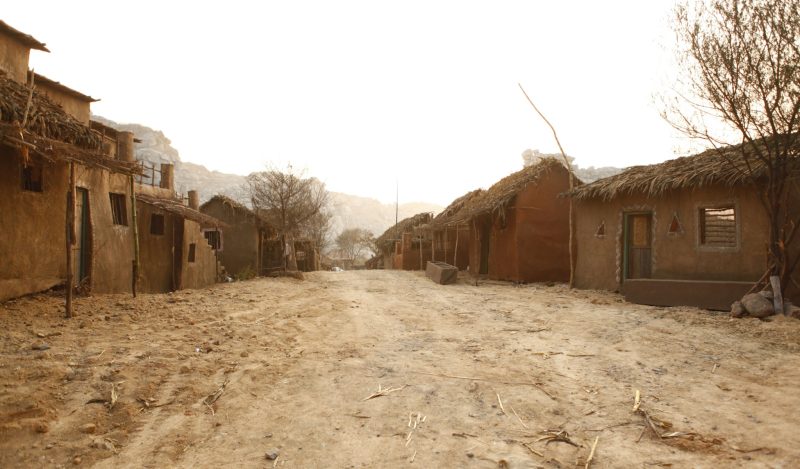Climate scientists are frustrated by people who do not believe in climate change. In epidemiology, our frustration is with anti-vaxxers. Most anti-vaxxers are highly educated but still argue against vaccination. We now face a similar situation with ‘anti-herders’, who view herd immunity as a misguided optional strategy rather than a scientifically proven phenomenon that can prevent unnecessary deaths.
Because of its virulence, wide spread and the many asymptomatic cases it causes, Covid-19 cannot be contained in the long run, and so all countries will eventually reach herd immunity. To think otherwise is naive and dangerous. General lockdown strategies can reduce transmission and death counts in the short term. But this strategy cannot be considered successful until lockdowns are removed without the disease resurging.
The choice we face is stark. One option is to maintain a general lockdown for an unknown amount of time until herd immunity is reached through a future vaccine or until there is a safe and effective treatment. This must be weighed against the detrimental effects that lockdowns have on other health outcomes. The second option is to minimise the number of deaths until herd immunity is achieved through natural infection. Most places are neither preparing for the former nor considering the latter.
The question is not whether to aim for herd immunity as a strategy, because we will all eventually get there. The question is how to minimise casualties until we get there. Since Covid-19 mortality varies greatly by age, this can only be accomplished through age-specific countermeasures. We need to shield older people and other high-risk groups until they are protected by herd immunity.
Among the individuals exposed to Covid-19, people aged in their 70s have roughly twice the mortality of those in their 60s, 10 times the mortality of those in their 50s, 40 times that of those in their 40s, 100 times that of those in their 30s, and 300 times that of those in their 20s. The over-70s have a mortality that is more than 3,000 times higher than children have. For young people, the risk of death is so low that any reduced levels of mortality during the lockdown might not be due to fewer Covid-19 deaths, but due to fewer traffic accidents.
Considering these numbers, people above 60 must be better protected, while restrictions should be loosened on those below 50. Older people who are vulnerable should stay at home. Food should be delivered and they should receive no visitors. Nursing homes should be isolated together with some of the staff until other staff who have acquired immunity can take over. Younger people should go back to work and school without older coworkers and teachers at their sides.
While the appropriate magnitude of countermeasures depends on time and place as it is necessary to avoid hospital overload, the measures should still be age-dependent. This is how we can minimise the number of deaths by the time this terrible pandemic is over.
Among anti-herders, it is popular to compare the current number of Covid-19 deaths by country and as a proportion of the population. Such comparisons are misleading, as they ignore the existence of herd immunity. A country much closer to herd immunity will ultimately do better even if their current death count is somewhat higher. The key statistic is instead the number of deaths per infected. Those data are still elusive, but comparisons and strategies should not be based on misleading data just because the relevant data are unavailable.
While it is not perfect, Sweden has come closest to an age-based strategy by keeping elementary schools, stores and restaurants open, while older people are encouraged to stay at home. Stockholm may become the first place to reach herd immunity, which will protect high-risk groups better than anything else until there is a cure or vaccine.
Herd immunity arrives after a certain still unknown percentage of the population has acquired immunity. Through long-term sustainable social distancing and better hygiene, like not shaking hands, this percentage can be lowered, saving lives. Such practices should be adopted by everyone.
Social distancing that cannot be permanently sustained is a different story. Some people will eventually be infected, and for every young low-risk person avoiding infection, there will ultimately be roughly one additional high-risk older person that is infected, increasing the death count.
Anti-vaxxers do not suffer the consequences of their beliefs, as they are protected by the herd immunity generated by the rest of us. Neither will the anti-herders, many of whom can afford to isolate themselves from Covid-19 until natural herd immunity is achieved by others. It is older and working-class people that disproportionately suffer from the current approach, becoming infected and thereby indirectly protecting much lower-risk college students and young professionals who are working from home.
The current one-size-fits-all lockdown approach is leading to unnecessary deaths. Protecting older people and other high-risk groups will be logistically and politically more difficult than isolating the young by closing schools and universities. But we must change course if we want to reduce suffering and save lives.
Reprinted from Spiked-Online
Published under a Creative Commons Attribution 4.0 International License
For reprints, please set the canonical link back to the original Brownstone Institute Article and Author.









